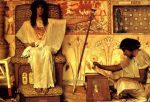
Joseph’s Birth—A View From Quantum Mechanics and Biology
And afterwards she bore a daughter, and called her name Dinah. (Genesis 30:21) In my previous essay, “The Conflict Between Joseph And His Brothers—A Gender

And afterwards she bore a daughter, and called her name Dinah. (Genesis 30:21) In my previous essay, “The Conflict Between Joseph And His Brothers—A Gender
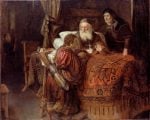
And Rebekah spoke unto Jacob, her son, saying: “Behold, I heard thy father speak unto Esau thy brother, saying: Bring me venison, and make me
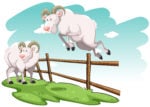
And all the tithe of the herd or the flock, whatsoever passeth under the rod, the tenth shall be holy unto the Lord.” (Leviticus 27:32)
In my post, “Ye Shall be Disentangled,” I suggested that the verse: “Ye shall be holy, for I, the Lord, your G‑d, am holy” (Levit.
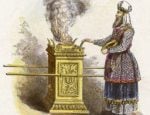
At the end of the weekly portion, Tetzaveh, the Torah speaks of the burnt offerings (Heb. qorbanot) and the incense offerings (Heb. qetoret). The Lubavitcher
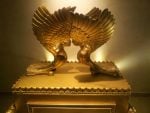
And thou shalt make two cherubim of gold; of beaten work shalt thou make them, at the two ends of the ark-cover. And make one
In my last year’s post “Balak – Interference of Souls,” I suggested that Balak needed Balaam (Bilam) to cause constructive interference to make the curse
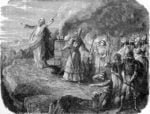
Balak the son of Zippor saw all that Israel had done to the Amorites. Moab became terrified of the people, for they were numerous, and
Ye shall be holy, for I, the Lord, your G‑d, am holy. Leviticus 19:2 This Torah portion begins with an astonishing statement: Speak unto all
B’reshit bara Elokim et hashamaim v’et haaretz… In the beginning, G‑d created heaven and earth… Alternative translation: With two beginnings G‑d created heaven and earth…

And he shall take the two he goats, and place them before the Lord at the entrance to the Tent of Meeting. And Aaron shall